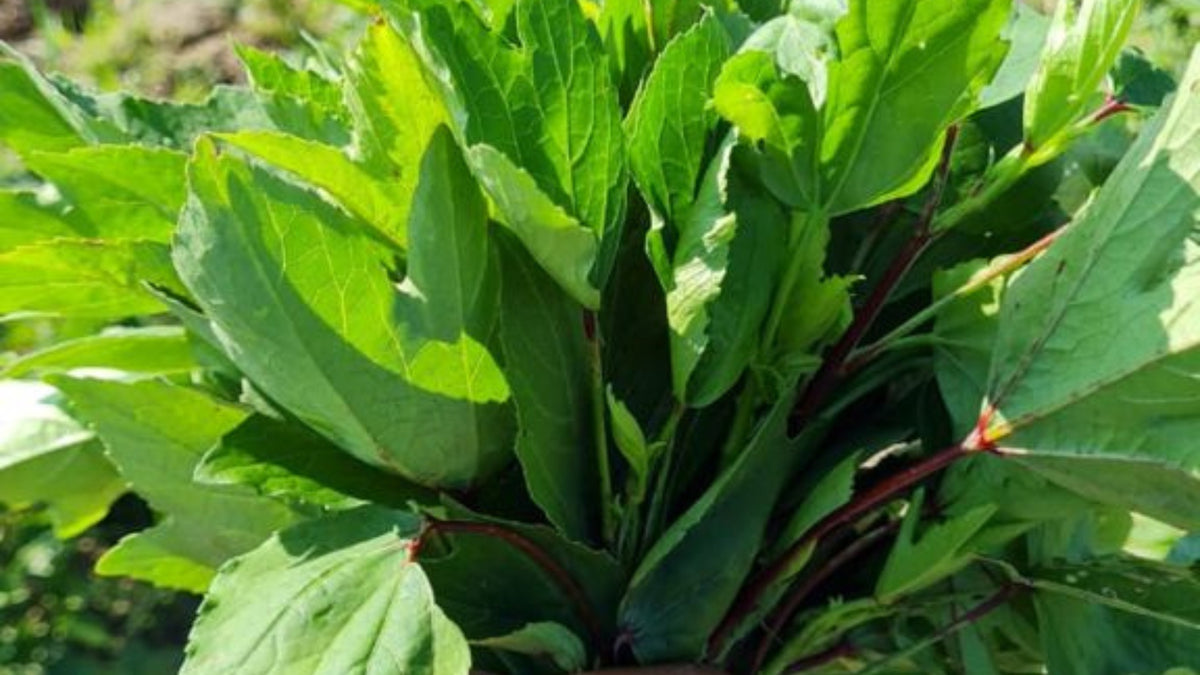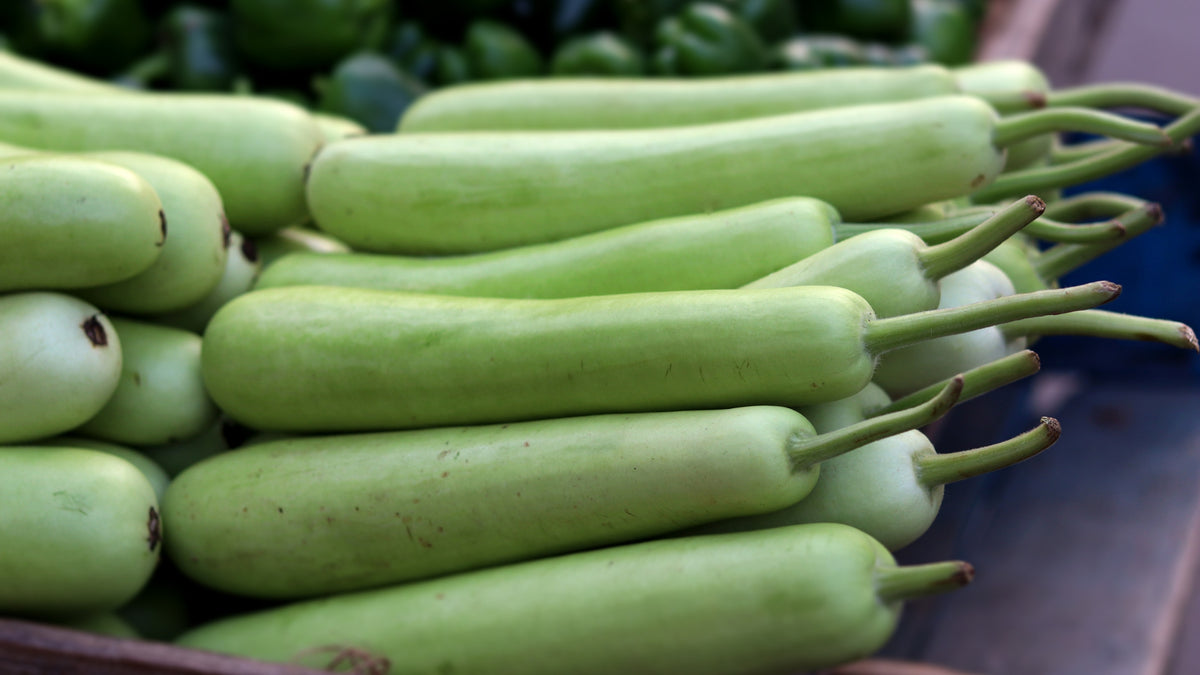
Is Juice Cleansing Ayurvedic?

One of the basic tenets of Ayurveda tells us that uncooked, raw vegetables will aggravate vata dosha. The innate qualities of raw vegetables are cold, dry, and heavy, which is harder to digest than cooked vegetables that are warm, moist and light. Too many uncooked, raw vegetables can lead to slower digestion, burping, bloating, gas and constipation. We all have our own capacity to digest vegetables and food. This solely depends on the strength of your digestive system and metabolism.
Generally, juicing with raw vegetables is not Ayurvedic. However, this juice cleanse is specifically designed to balance and not aggravate vata dosha. By choosing specific vegetables that cleanse and nourish the digestive system, the combination of ash gourd, bottle gourd and ginger is balancing to vata, pitta and kapha.
Yearly or seasonal cleansing is highly recommended by Ayurveda. The main reason is to reduce the buildup of ama (toxins) that naturally accumulates in all of us. Especially as we age, it becomes more important to reduce the buildup of ama because it is the main culprit for all diseases. Ama is a sticky substance that accumulates throughout the body and interferes with our bodily functions. The ancient Ayurvedic text reminds us that those who are free from ama will also be free from disease.
Ayurvedic juice cleansing recommends using a cold press slow juicer that extracts the juice from the vegetables. This method of juicing separates the juice from the pulp, and only the concentrated liquid juice is consumed. It is the fibrous pulp that aggravates vata dosha. Ginger is a digestive aid and helps to ignite digestive strength, which is also balancing for vata dosha. The vegetables prescribed for an Ayurvedic juice cleanse are chosen for their sweet taste, which also balances vata dosha. Unlike raw, leafy, green vegetables, which most definitely aggravate vata dosha due to their bitter and astringent taste.
Ash gourd is the main vegetable because it is cleansing but also highly nutritious due to its sweet taste. The sweet taste of ash gourd is very balancing to vata and pitta dosha and its qualities strengthen the digestive, nervous and musculoskeletal system.
Ayurvedic juice cleansing does offer similar benefits as fasting. The goal is to remove toxins from the body. An Ayurvedic juice cleanse recommends 300ml of fresh pressed juice once or twice per day on an empty stomach. We recommend eating regular meals which are freshly cooked with foods like beans, rice or quinoa, cooked vegetables, ghee and spices.
An Ayurvedic juice cleanse requires foods with qualities that are warm, moist and light. For the best results, prepare meals like kichari or moong dahl, which offer the perfect qualities for cleansing. Although there are no plant food restrictions, eating healthy and fresh cooked meals is required. Avoid animal foods (except ghee), packaged foods, junk foods, sugary foods, fried foods, caffeine and alcohol while juice cleansing.
The best time of year for a juice cleanse is when the vegetables are in their peak season. This is anytime between June and November depending on the climate location.
For the best results, stay on a juice cleanse for two to three months. Especially if your goal is to reduce weight, lower blood sugar, blood fats, blood pressure or reduce muscle or joint pain.
Ayurvedic juice cleansing provides concentrated nutrition that is easily absorbed into the body. Optimizing nutritional intake is a key factor for the proper function of all internal organs. The Ayurvedic doctor at Kottakkal has personally seen very good results for lowering weight, blood sugar, cholesterol, high blood pressure, stomach acidity and many other disorders that require cleansing ama (toxins) from the body.
Preparing fresh juice with a cold press or slow juicer requires about 10 minutes per day. We recommend juicing once or twice per day on an empty stomach about 30 minutes before breakfast and before dinner if juicing twice per day.
A slow motion or cold press juicer is the best type rather than a high-speed juicer that causes friction and heats the juice which reduces the nutrition. Slow juicers are also very easy to clean and only require rinsing under hot water.
We do recommend consulting with our Ayurvedic doctor if you are planning to juice cleanse for a specific condition. Many conditions like weight loss and high blood sugar, cholesterol, blood pressure or stomach acidity require an Ayurvedic assessment to understand the underlying root cause of the imbalance. If the root cause is never corrected, then the efforts to cleans or take herbs will offer only temporary benefit.
Ayurveda does not recommend cleansing for people who are depleted, elderly, sick, injured or suffering from trauma. Before cleansing we recommend consulting with an Ayurvedic doctor or practitioner if you are experiencing any type of illness or weakness.
To learn more about Ayurvedic Juice Cleansing, visit our sister organization Gopal Farm to purchase a weekly Ayurvedic Juice Box.
To learn more about having an Ayurvedic Health Consultation, click here to learn more about our Ayurvedic doctor, Vaidya Vishwanath Guddadar.
Disclaimer: These statements have not been evaluated by the Food and Drug Administration. Kottakkal Ayurveda products and this information is not intended for use in the diagnosis, treatment, cure, or prevention of any disease. If you have serious, acute, or chronic health problems, please consult a trained health professional. If you are seeking the medical advice of a trained Ayurvedic practitioner or doctor, call (800) 215-9934 or email us at contact@kottakkal.shop and we will provide you with one of our affiliated Ayurvedic professionals. Check with your doctor before taking herbs when pregnant.
Also in Healing with Kottakkal Ayurveda

Food is Medicine - Organic Gongura Leaf
Gongura, often referred to as Indian sorrel, is a leafy green vegetable packed with an array of health benefits. This vibrant green is a treasure trove of essential vitamins, minerals, and antioxidants.

Food Is Medicine - Organic Bottle Gourd

Boosting Energy and Rejuvenation with Narasimha Rasayana
Narasimha Rasayanam is an herbal jam formulated with base ingredients of butter, honey, and milk. This time-tested remedy is believed to promote balance within the body's three doshas, vata, pitta, and kapha and supports a range of health concerns. From supporting physical strength and hair health to promoting rejuvenation and cognitive function, Narasimha Rasayanam offers a multifaceted approach to well-being.


Vaidya Vishwanath
Vaidya Vishwanath grew up in Pune, India which is hub of traditional Ayurvedic gurukul teachings, following the principles of Ayurveda as part of his culture. He has dedicated his career over the past 1 ½ decades to the science of Ayurveda.